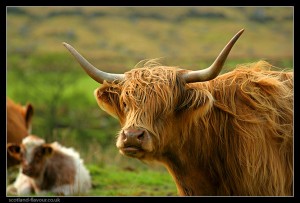 I have been a bad, bad blogger of late. This is my first post in almost two months. Forgiveness! I have lots to talk about, especially our trip to England and Scotland earlier this month. It will, I promise, be discussed at length over the next few posts. To start with, here’s the story of one of the best beer quotes I’ve ever heard.
I have been a bad, bad blogger of late. This is my first post in almost two months. Forgiveness! I have lots to talk about, especially our trip to England and Scotland earlier this month. It will, I promise, be discussed at length over the next few posts. To start with, here’s the story of one of the best beer quotes I’ve ever heard.
After checking into our sleeper berth on the overnight train from London to Aviemore, Scotland, we walked to the dining car. I noticed several people around me drinking Stella, so I asked the waiter, “What beers do you have other than Stella?” He replied firmly, “Stella’s not beer. It’s lager.”
It seemed odd at first, but it was a great example of how regional beer culture really is, even seemingly specific terms like beer, ale, and lager. The English and Scottish are notoriously crusty when it comes to defining these words – especially “ale” (they’ve earned the right- see CAMRA) – and they mean something entirely different from what we American brewers and drinkers mean when we use those terms.
We American brewers take “ale” to mean “top fermenting beer,” or “beer that ferments around room temperature,” or more scientifically “beer brewed with Saccharomyces cerevisiae yeast.” Although that last part is only a partially correct historical designation, since lagers (cold-fermenting bottom-fermenting beers ) are brewed with Saccharomyces uvarum (also known as Saccharomyces carlsbergensis), which is now considered to be a subspecies of Saccharomyces cerevisiae (a.k.a. ale yeast), rather than an entirely different species. So even the science of the situation is a bit complex. Confused yet? Try visiting Texas, where “beer” is a malt beverage with an ABV below 5%; any higher and it’s legally called “ale.” Even if it’s brewed with a lager yeast. So a lager can be both a beer and an ale, but an ale can never be a beer…
The point is that the meaning of these terms is more fluid than we often acknowledge, and my Scottish friend was reminding me that they consider “ale” and “beer” to be sort of the same thing, but “lager” is something entirely different (and something somewhat unusual and foreign in Scotland, it seems.)
In the end, I tried several different Scottish ales that night, all of them wonderful. None of them were lagers, and all of them were beers. Except for one of them, which had some spices in it, which would make it not-beer. At least as far as German law is concerned…

Great quote. I always thought of it as “room temp vs. cave temp”, and the appropriate yeast follows suit. And those Texans are just crazy.